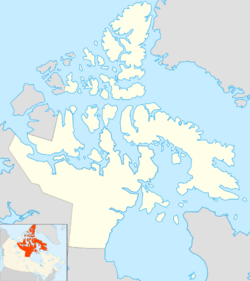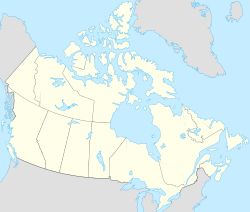Nattiqtuut facts for kids
| Geography | |
|---|---|
| Location | Coronation Gulf |
| Coordinates | 68°22′00″N 108°55′29″W / 68.36667°N 108.92472°W |
| Archipelago | Canadian Arctic Archipelago |
| Administration | |
|
Canada
|
|
| Territory | Nunavut |
| Region | Kitikmeot |
| Demographics | |
| Population | Uninhabited |
Nattiqtuut is a group of islands located in the far northern part of Canada. These islands were once known as the Entry Islands. They are found in a body of water called the Coronation Gulf.
Contents
Where are the Nattiqtuut Islands?
The Nattiqtuut islands are situated in the Coronation Gulf. This gulf is a large inlet of the Arctic Ocean. The islands lie south of Victoria Island, which is one of the largest islands in Canada. They are also west of another landmass called Kiillinnguyaq.
These islands belong to the Kitikmeot Region within Nunavut. Nunavut is a large territory in northern Canada. It is mostly made up of islands and the northern mainland.
Nearby Island Groups
The Nattiqtuut islands are not alone in this area. Other island groups are also found nearby. These include the Porden Islands, the Triple Islands, and Ungiiviit. This shows that the Coronation Gulf has many islands.
What is an Island Group?
An island group is a collection of islands that are close to each other. They often share similar features or were formed in the same way. The Nattiqtuut islands are an example of such a group.
Uninhabited Islands
The Nattiqtuut islands are currently uninhabited. This means that no people live there permanently. Many islands in the Canadian Arctic are uninhabited due to the harsh climate.
The Arctic Environment
The area where the Nattiqtuut islands are located is part of the Canadian Arctic Archipelago. This is a vast group of islands in the Arctic Ocean. The environment here is very cold, with long, dark winters.
Wildlife in the Arctic
Even though these islands are uninhabited by humans, they can be home to various Arctic animals. Animals like polar bears, seals, and different types of birds often live in or visit these northern regions. They are adapted to survive the cold conditions.
 | Valerie Thomas |
 | Frederick McKinley Jones |
 | George Edward Alcorn Jr. |
 | Thomas Mensah |



